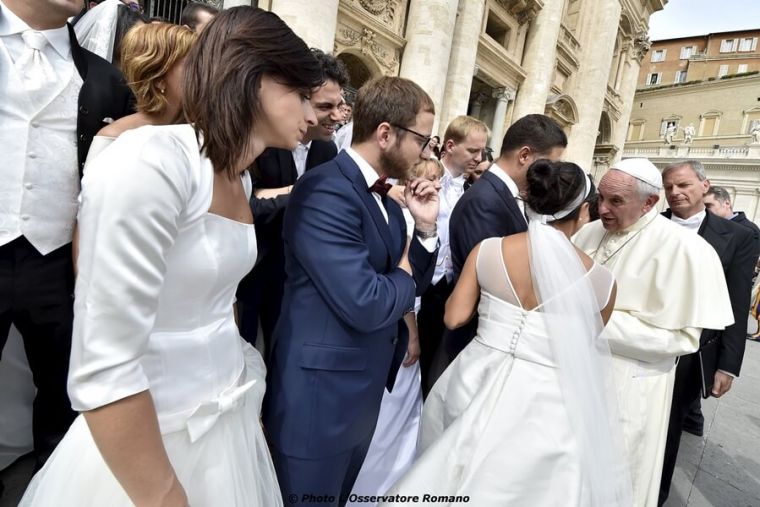Revision of marriage annulment processes prompted by need for mother Church to draw closer to its children—Pope Francis

Following the Vatican announcement on Tuesday that Pope Francis has made sweeping revisions of the centuries-old process of marriage annulment in the Roman Catholic Church, the pope made it clear that the adjustments were made to enable the Church to draw closer to the people while affirming the longstanding Catholic teaching on marriage indissolubility.
In introducing the reforms, Pope Francis stressed that the adjustments "do not favour the nullifying of marriages but the promptness of the processes," according to the Catholic News Agency.
Reform was needed, the pope said, due to "the enormous number of faithful who...too often are diverted from juridical structures of the Church due to physical or moral distance."
He said "charity and mercy" require the Church as mother to draw closer to her children who consider themselves far off.
The pope explained that he made the changes in line with the comments made by his brother bishops, who earlier requested that the process be made "faster and more accessible." Many have complained that the old process was too complex and lengthy, not to mention costly.
Several dioceses around the world have already been granting free annulment services, but Pope Francis' new order makes it free of charge anywhere around the globe.
One of the significant changes made by Pope Francis was the dropping of the automatic appeal provision after a decision on nullity has been reached. He also allowed local bishops to make their own judgements on "evident" cases of marriage nullity.
The old process requires that the ruling be appealed to another body even after a decision had been made to declare a marriage null. A lot of people have blamed this step for unnecessary delays in the annulment process.
With the changes made by Pope Francis, only one judgment will be needed. In case the decision is appealed, one need not go to Rome to resolve it, as was the practice before. Now the parties involved can go to the nearest metropolitan diocese to render a final verdict.
The pope also gave each diocese throughout the world the responsibility to name a judge or tribunal to process incoming marriage annulment cases. The bishop can be the only judge, or he can also establish a three-member tribunal consisting of at least one cleric and two laypersons.
The pope acknowledged that the streamlined process could raise concern over the Church's teaching on the indissolubility of marriage.
"It has not escaped me how an abbreviated judgment might put the principle of indissolubility of marriage at risk," he said.
"Indeed, because of this I wanted that in this process the judge would be composed of the bishop, so that the strength of his pastoral office is, with Peter, the best guarantee of Catholic unity in faith and discipline."
The Catholic church does not recognise divorce. It forbids Catholics who are granted a civil divorce and who remarry from taking the Communion, a key component of Catholic life. Instead, a Catholic who wants to end his or her marriage must go to the church to seek an annulment, which tended to discourage many Catholics in the past because of its complicated procedure and the high cost of obtaining an annulment document.











